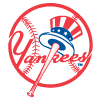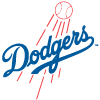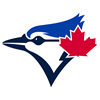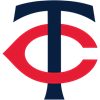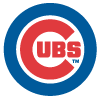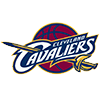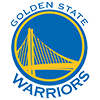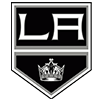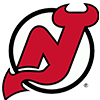Sometimes the best planning for next year can come about by reflecting on what happened this year. Did your plans prior to the 2011 draft work out? What kinds of surprises did you encounter? There will have been injuries - those are always part of the game to contend with - and there were probably some changes in roles either brought on by trades or unexpected movement of players within the organizations. Those are to be expected. Therefore, the best analysis of the past season should focus on the players you anticipated having breakout or comeback years, and those you expected to drop off from previous years' production.
The goal is to identify emerging trends, changes in player development, organizational approach variances, all the things that could have an impact on your draft strategy. And, obviously, look at pitchers who performed up to your expectations, and then take a good look at those who failed to meet your predicted levels of performance. This will help in determining whether you should again pursue a pitcher, or is he one you should cross off the list? Finally, re-evaluate "ceilings" for pitchers you have been following. If a pitcher performed reasonably well in 2011, that recent performance will greatly impact his draft position/price next season. If you believe he performed at the top of his game, or worse yet, had an unexpected "career year" you probably want to avoid him next year
Sometimes the best planning for next year can come about by reflecting on what happened this year. Did your plans prior to the 2011 draft work out? What kinds of surprises did you encounter? There will have been injuries - those are always part of the game to contend with - and there were probably some changes in roles either brought on by trades or unexpected movement of players within the organizations. Those are to be expected. Therefore, the best analysis of the past season should focus on the players you anticipated having breakout or comeback years, and those you expected to drop off from previous years' production.
The goal is to identify emerging trends, changes in player development, organizational approach variances, all the things that could have an impact on your draft strategy. And, obviously, look at pitchers who performed up to your expectations, and then take a good look at those who failed to meet your predicted levels of performance. This will help in determining whether you should again pursue a pitcher, or is he one you should cross off the list? Finally, re-evaluate "ceilings" for pitchers you have been following. If a pitcher performed reasonably well in 2011, that recent performance will greatly impact his draft position/price next season. If you believe he performed at the top of his game, or worse yet, had an unexpected "career year" you probably want to avoid him next year - chances are he will be overvalued and will be too expensive to provide you with stats at a bargain price. If, however, you feel the good year this year was merely a hint at much better things to come, that pitcher could be a wise investment.
Regular readers of the Notebook already know where this is headed ... value discovery. That is the single most important factor in consistently doing well in fantasy baseball. If you underpay for exceptional performance, you will typically do well. That said I would like to provide you with an exercise you should engage in every season. This is critical in keeper leagues, but it can also provide a good measuring stick with regard to values of players in redraft leagues.
Start by listing the members of your end of the year pitching staff. Next to the name, list the dollar amount spent in last year's auction, or the draft position your guy was taken. Now for the hard part. In the next column, write in the anticipated auction price or draft position for next season. In keeper leagues, comparing column A to column B will instantly give you a good idea of who you should be protecting and who you should be releasing back into the player pool. Regardless of the draft format, the comparisons of the two columns will help you evaluate (and adjust) your player ratings. Here's an example (the $ amounts are just for demonstration purposes):
| Pitcher | 2011 Auction Price | 2012 Anticipated Price | Variance |
| Felix Hernandez | $32 | $28 | -4 |
| Ian Kennedy | $12 | $21 | +9 |
In the example, if you bought Kennedy, you garnered considerable value, while a purchase of King Felix did not really pay off. In a keeper league, Hernandez is an easy cut - even if you think he will have a huge year in 2012, you can probably buy him back for slightly less than it would cost to protect him - while you need to seriously consider in the 2012 draft. Obviously, the other component to the equation is your expectations for the future. Kennedy is only a good protection if you believe he will outperform (or at the very least match) his protected $12 price tag. Keep in mind, protection spots are very valuable too, so just matching a $12 price performance probably would make him a poor choice to protect for next season. You get the idea. Overall, in a keeper or redraft, if that variance column is filled with "+" signs you probably had a very good year and can expect to do well going forward, but if you have a column full of "-" signs, you either had some really bad luck (you have to be honest with yourself on this one) or you might want to adjust your player evaluation strategy.
For the player section of this week's Notebook, I would like to throw out some general observations, or reflections if you will, on some American League pitchers and their 2011 performance. Next week we'll reflect on the National League.
A Journey Around the American League
AL East:
The Yankees have put together another playoff contender, but without the benefit of a star-studded pitching staff. CC Sabathia was in his normal ace mode most of the season, but Ivan Nova had to be a big surprise, while Bartolo Colon and Freddy Garcia qualify as miracles. Look for Phil Hughes to step it up a notch next year, but you might see a bit more decline in the aging Mariano Rivera.
Boston stayed in it with a monster hitting lineup but the pitching - other than a generally healthy Josh Beckett - was disappointing. Jon Lester had a good but not great year, and Clay Buchholz labored through season long back problems. There are plenty of question marks for 2012. Jonathon Papelbon again proved he can be a top tier closer, especially when it really counts.
In Tampa Bay they are still looking for the hitting to compliment an exceptional pitching staff that is jammed full with ready to go kids and already established young arms. David Price was again good, but may not reach the level anticipated when he was drafted, James Shields was actually the staff ace and could remain at that level, while others like Jeremy Hellickson and Jeff Niemann proved they belong. Don't be surprised if Matthew Moore climbs quickly up the food chain to the top of their rotation. He is that good.
Toronto saw Ricky Romero step it up nicely while Brandon Morrow regressed a bit with command issues that haunted him all season. I'm not ready to give up on Morrow by any means - that recent start against the Yankees again shows us what he could be - and I think they will eventually get Kyle Drabek straightened out. I've seen enough to be bullish on Dustin McGowan for next year (cross your stay healthy fingers) and Henderson Alvarez showed some spark, albeit he will still have some rough stretches.
The inner harbor in Baltimore might be a very good place to avoid next year, with a couple of notable exceptions. Jake Arrieta fought through elbow pain for half a season before being shut down to get the problem eliminated. He'll be back next spring and his 2011 numbers will mask his true ability. I'm buying. Zack Britton is also perhaps worth considering. Then there is Kevin Gregg. Hopefully he has cashed his ticket out of town so Jim Johnson can step in as the closer. He may also get a look as a starter and he could be a decent flier in either role.
AL Central:
Justin Verlander has turned in one of the most dominant seasons in recent memory, and with his free and easy delivery the Detroit faithful can probably look forward to more of the same for the foreseeable future. Rick Porcello is improving as he continues his on the job training and Max Scherzer could still be a positive force if they can get him into a more repeatable delivery, but how about Doug Fister? The Mariners again proved that they are better at finding talent than they are at refining it. Don't expect the same as you've seen since he moved to Detroit, but he could remain effective.
The Chicago White Sox rank right at the top of the underperformer list for 2011. Mark Buehrle may have enjoyed a late-career swan song and Gavin Floyd was generally alright, but John Danks disappointed and Jake Peavy fought through another injury plagued year. Philip Humber was a pleasant surprise, and Chris Sale should be a big addition to the rotation next year, but the White Sox probably need a change in leadership to make some of their arms more appealing next year.
Cleveland stayed in it after a blazing start, but their thin starting pitching eventually caught up to them. Justin Masterson had a big year and could be establishing himself although I expect him to be a bit overvalued next season. Fausto Carmona was horrible, acceptable, horrible and horrible (is this a pattern?), while Carlos Carrasco showed some positive signs. I also liked a bit of what I saw in Jeanmar Gomez late in the year. That's a good thing - they are going to need him and a few others to step it up.
In Kansas City, looking at 2011 performances will allow you to quickly move along. Bruce Chen was respectable, but there is no real upside there, and Luke Hochevar enjoyed perhaps his best pro season - maybe, just maybe, the light is going on. The news is all about the young arms on the way. Aaron Crow is ticketed for a rotation spot next year, Danny Duffy gained some valuable experience, and Mike Montgomery will hopefully be ready to contribute soon. They have those amazing kid hitters if the pitchers develop as well.
Minnesota is another of those places to avoid right now. I have my doubts that Francisco Liriano will ever be healthy and effective at the same time, the very promising Scott Baker joins him on the perpetually hurt list, and Carl Pavano is the poster child for "Don't Chase Wins" so the establishment is shaky at best. Their top prospect, Kyle Gibson will miss all of 2012 with injuries, which leaves my best bet for success in the great white north - Liam Hendriks. He will almost assuredly have his struggles and might begin next year at Triple-A, but he is someone to look forward to.
AL West:
Texas is finding that decent pitching can win if you have enough lumber to support it. I consider Derek Holland to be one of the most exciting young arms in the game. He will occasionally throw in the clinker, especially in his hitter friendly ballpark, but his star is on the rise. I'm buying if I can get any kind of discount at all. C.J. Wilson made an almost incredible transition from the bullpen, and Colby Lewis will likely remain a solid but not spectacular starter. Alexi Ogando somehow survived in the rotation with two pitches, and Neftali Feliz could face the same challenge next year. That is a source for concern.
The Angels have their own version of the good and the not so good. Jered Weaver was the very good virtually all year, while Dan Haren and Ervin Santana had their moments as well. Unfortunately, the back of the rotation - Joel Piniero, Tyler Chatwood, etc. was not so good at its best. Look for more from Weaver, but Haren may be slipping a bit, and Santana, although improving, still lacks the consistency you would like to see. Other than their bright young closer, Jordan Walden, the rest of the group is iffy at best.
Pitching in Oakland is a dream come true for many starting pitchers. Both Trevor Cahill and Gio Gonzalez are learning that you still need to throw quality strikes, and hopefully they will progress along those lines. The real story is Oakland's ability to glue arms back on and get quality numbers from them - at least for awhile. Brett Anderson should be back next year, Brandon McCarthy was very solid this season, and Rich Harden defied the odds by lasting all year. Even their exceptionally talented and oft-injured closer, Andrew Bailey, offers big upside. But, they all come with a high risk disclaimer.
Felix Hernandez is still just a kid, and the Mariners are trying to build some kind of offense around him, but King Felix slipped a bit this year, and the future is still in the making so he could be slightly discounted next year on draft day. He'll be back. And, Michael Pineda will be back too. He was one of the most impressive kids to debut in 2011, and he has the stuff and presence to build on that success. The rest of the rotation options like Jason Vargas and Blake Beavan are worthy of consideration just because of the park, but the diamond in the rough might be in the bullpen. I really like the "chances" of Chance Ruffin becoming their closer. They might be willing to part with Brandon League while his value is up as a way to bolster the offense.
Next week we'll take a spin around the National League. Who do you love/hate for next season? It's right around the corner, you know!
For some of the most in-depth coverage of all things pitching in fantasy baseball for 2011, visit www.bogfella.com and be sure to follow @RotoWire and @bogfella on Twitter.











